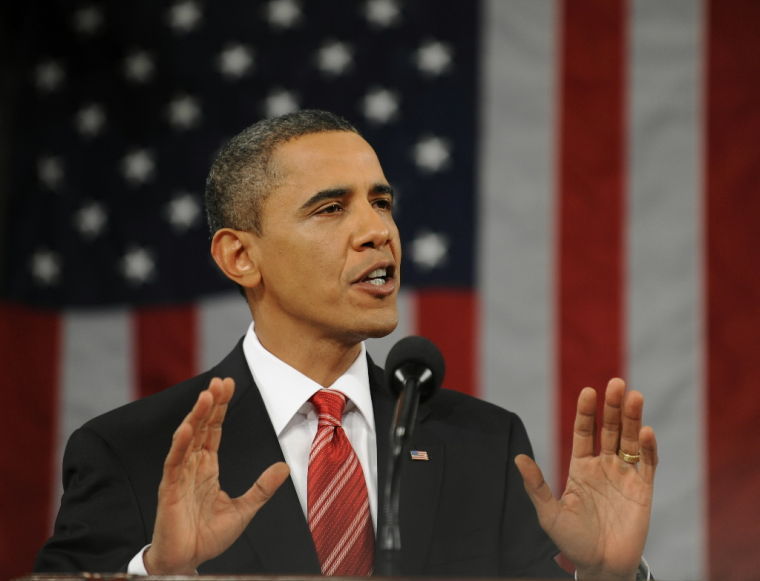President Obama’s State of the Union Address last Tuesday was nothing special and nothing new. Like most of his previous speeches, this one was full of populist banalities, invoking the liberal dictum that “we’re all in this together.” Who “we” are and what exactly “this” is, I have yet to decipher.
It can be difficult to navigate a speech like this because of the excess of political jargon and lofty rhetoric. President Obama argued for a typical liberal goal, raising the minimum wage, while at the same time lamenting the fact that young adults are “fighting for their first job.”
He needs to realize that he is pursuing dichotomous goals. Raising the minimum wage to $9 an hour will have a negative net effect on employment. The minimum wage should absolutely not be a “living wage,” since most minimum wage jobs are filled by those who do not live on their own. This includes high school and college students, as well as those who work such jobs for supplementary income.
Without a minimum wage, someone with little education or work experience may be able to find a menial job which provides them with valuable experience and some income. With minimum wage laws, a job like that may not be fiscally responsible for the employer.
In many American cities, youth unemployment rates are as high as 50 percent. In European cities with higher relative minimum wages, that rate is even higher. This is no coincidence. Minimum wage laws are detrimental to the people they are designed to help.
The portions of Obama’s address that focused on the deficit combined liberal partisanship with intentionally fuzzy math. For instance, he proposed to cut $2.5 trillion from the deficit. However, the deficit last year was only $1 trillion. Obama was referring, I believe, to the deficits over the next 10 years, which will be reduced by a cumulative $2.5 trillion.
Some of these alleged reductions are coming from the winding down of the Iraq and Afghanistan wars, which can hardly be called “deficit reduction” so much as the completion of a previously decided plan. Some of the revenue comes from increased income taxes rates. However, increased rates rarely produce the expected amount of revenue, since they hamper growth and drive away investment.
The deficits under the current administration have been all-time highs because the real drivers of our deficit and debt, Medicare, Medicaid and Social Security, have either maintained their current trajectory or been expanded. Healthcare entitlements are sometimes referred to as the “third rail” of politics because one touch could kill your career. We desperately need politicians today to address the unsustainable fiscal trajectory of these programs, unless they are allowed to derail our entire government.
Tellingly, the president spoke of “growing” the middle class by increasing government “investment.” However, the time in which the middle class became an extant sociological phenomenon was not a time without government spending or programs, but a time of vibrant capitalism and trade. The existence of the middle class is owed to the rise of capitalism, not the welfare state. The only way President Obama will grow the middle class is by tearing down the wealthy.
There were many more issues that Obama discusses in his speech, from fear-mongering over climate change to exploiting the Newtown tragedy as a call for increased gun control. Whatever he proposed, however, was backed by the ideology that government must be the driving force behind change and play an increased role in the everyday lives of every citizen.
Our current path is one that will allow the federal government to grow unchecked. Like weeds in an abandoned garden, it will choke the life from civil society and the private sector, the twin engines of prosperity, until there is nothing left but bankrupt government programs and a broken nation.
The future depends on whether or not we can break our addiction to the government dole before it is too late.





















































